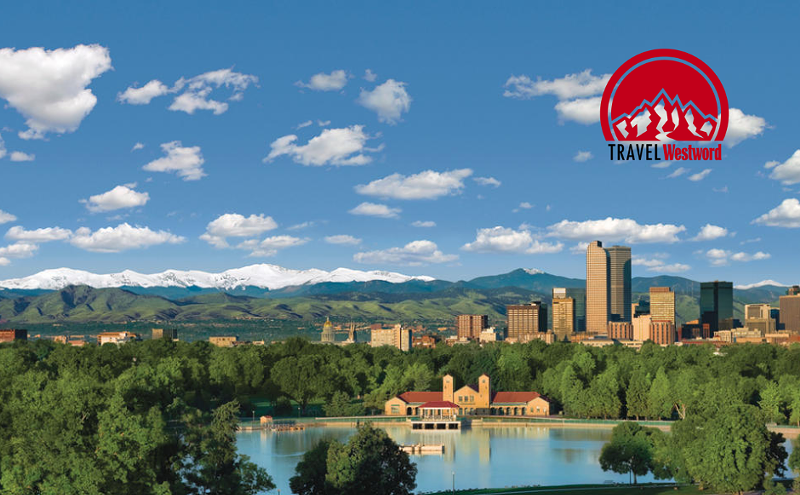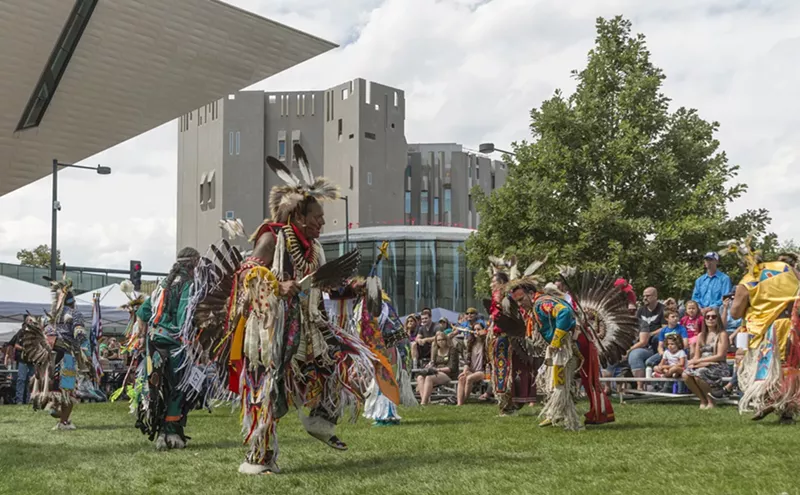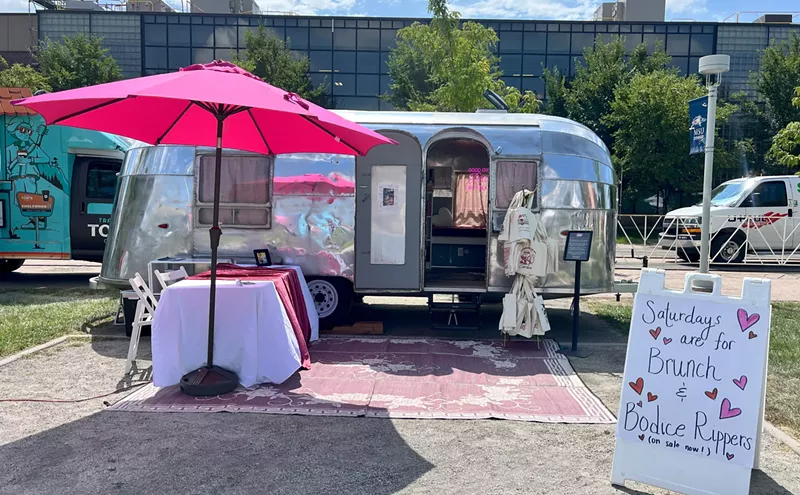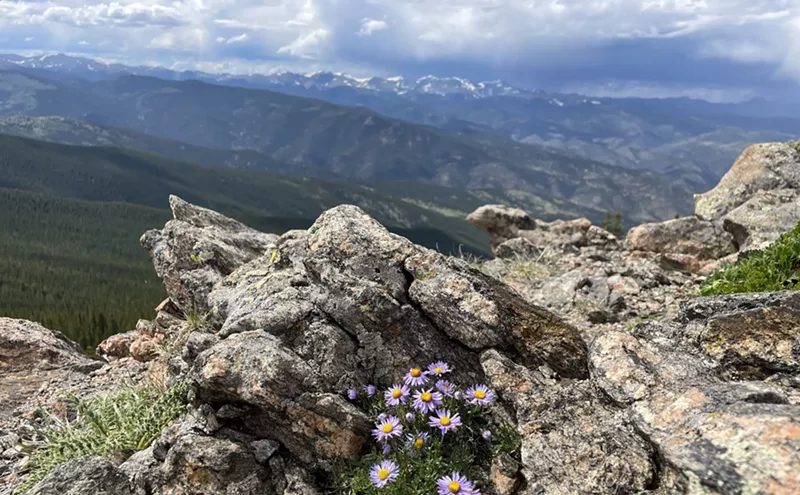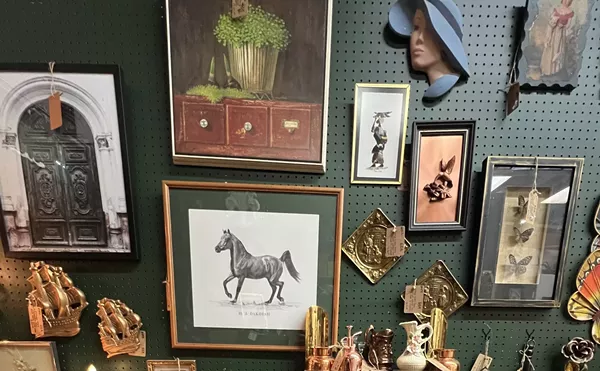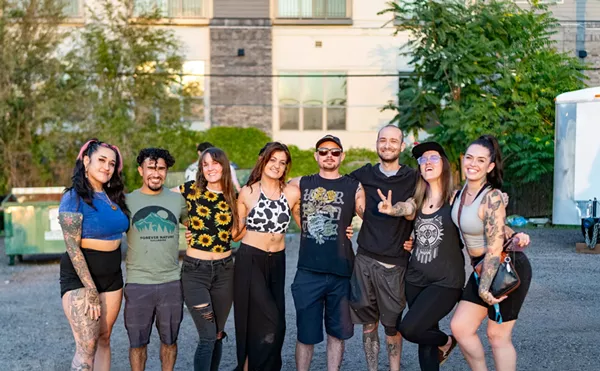What Erica and Mateo created was Finca Bellavista. The Costa Rican treehouse community's name roughly translates to "village with a beautiful view," and the treehouses that comprise it surpasses anything in a suburban backyard. Ranging from 800 to 1400 square feet, these have full kitchens, bathrooms with running water, electricity and internet access. The local climate means no need for heat or air conditioning. And outside are hundreds of tropical birds and more than a few treehouses have waterfall views. These homes are accessible via ziplines, suspension bridges and bamboo ladders.
The 300-acre property was so magnificent, American Eagle Outfitters used it as the backdrop for its Summer 2011 campaign. AE's production agency gave them a call out of the blue and images of the wildlife, waterfalls and trees ended up on jumbo-trons in Times Square. "The day before they called, we were looking at the results of having one sale over a year and maybe having to lay-off some of our crew," Erica says. "They called the next day, and that changed everything. It kept us floating and completely changed the energy." They've hired four more employees, for a total of twelve, since then.
"The most moving part for me was being in Times Square and seeing HD videos, 20 feet tall, with images of waterfalls and ziplines and, of course, beautiful models. Every time the Finca stuff came on, it just shed this sea of green over all of Times Square," Mateo says. "There'd be fifteen to twenty thousand people there, and when the five-minute video would turn on, they'd all be just, 'Holy shit.'"
The idea for the "Ewok village," as Erica and Mateo often call it, came in 2006. Mateo went on a surfing trip to Southern Costa Rica, and it was love. Erica was a reporter at the Crested Butte News and Mateo was co-owner of a roofing contracting company. During his trip, Mateo heard about an international airport planned for the area -- it is still years in the making -- and convinced Erica it would be a great investment. He found an ad that read "Buy this farm with secondary growth forest, harvest the timber and recoup your investment. Sell for profit as a cattle ranch," he recalls. There was a photo and what it depicted wasn't a few timber trees. From the tiny picture, he could see waterfalls and luscious shades of green. It was larger than they had planned to buy, 62 acres, but they wanted to save the trees.62 acres quickly turned into 300 acres when the Hogans realized that the surrounding farms were also being sold off for timber. The couple didn't have the money for all the land, so they asked friends and family to chip in by buying portions, the largest being just over four acres. Friends and family expanded to strangers, many from Crested Butte and Boulder, and soon they had the money to buy the land outright. "The mindset between Coloradans and what they can find in Costa Rica in terms of lifestyle and what they can enjoy on a day-to-day basis is very similar," Erica says, "it's very outdoor-oriented." The land will be sold in three phases. Phase I and II were sold at a 50 percent discount in order to raise money for the full infrastructure -- things like roads connecting to the Inter-American Highway a mile away and an electrical grid providing power for the whole development. There's one parcel left of Phase II. For Phase III, the Hogans are waiting until the basic infrastructure is in place, which they estimate will take a year. "The weather drives the planning more often than not," Mateo says, and they're hoping for peaceful winds. Those not ready to commit to a parcel can also rent a treehouse for $80 to $260 a night based on double occupancy.
To date, about 4,000 people have visited Finca Bellavista.
The land belongs to whoever buys the parcel, but there are strict rules for building in the community: No concrete foundations. In fact, all houses had to either be treehouses or stilt-built -- and no cutting down of trees.
Environmentally-friendly and sustainability are the big buzz words. 800 fruit trees on site were planted eight years ago and are starting to bear fruits like avocados, bananas, mangoes, starfruit and pineapple. A covered but open-air nursery grows greens and vegetables. Yucca and potatoes also grow on the property. All raised organically, the gardens provide 80 percent of the food served in the communal dining room, which visitors and residents can choose to opt into for $25 a day.
Materials for the treehouses are mostly sourced from within a two-hour driving radius from Finca Bellavista. "You have to go to the sawmill with the wood, bring it in, treat it and cure it," Mateo says. "Or use something less sustainable." Finca is going with the former. However, there are occasional things like screws that have to be imported. High-quality ones just aren't available in-country.
Currently, the treehouses number 24. Seven belong to private owners, two of whom live in them full-time. The rest can be rented for periods of a night or more. Erica and Mateo expect to eventually have 40 to 70 treehouses in the Phase I and Phase II space. "Everything has to be custom-built, so we help guide our owners in how to creatively build their homes," Erica says. "It's difficult, because it's not like a traditional housing community where you walk into the office and pick A, B, C or D. We encourage our owners to be involved in the building, whether it's the planning or the actual sawing of it."
"There are no typical treehouses," Erica says. "A treehouse is like a snowflake."
Erica and Mateo are in the process of installing a hydroelectric generator to provide electricity for the entire community. Using a river on site, they will be able to power the entire village. Currently, a solar electric system powers base camp -- composed of an office, communal dining area and kitchen, a bunkhouse for volunteers and a small shop with building supplies -- and the Hogan's home, while other treehouses have their own solar generators.
A year ago, Costa Rica began offering 3G internet, accessible in the treehouses. The country is planning on upgrading to 4G in a year, though it might take longer than that to reach the remote southern location of Finca Bellavista. One of their residents, who declined to be named, decided to move to Costa Rica full-time when he heard about the 3G. An internet entrepreneur, he created a hub of four 3G thumb drives. The system quadruples the bandwidth and, according to Mateo, his internet speeds are faster than T1. "Real time video conferencing, real time upload, download. It's insane," Mateo says. "With the internet, if you can do your work anywhere, why wouldn't it be in a treehouse with a waterfall in your front yard and monkeys for your neighbors?"
Since they're located in a jaguar migration zone, the Hogans are also working with ProCat, a NGO which focuses on preserving big cats, which is planning on opening a research station in Finca Bellavista. The Hogans also are looking into creating a learning laboratory. A "quasi-museum," as Erica describes it, it will showcase how the treehouses are built from how the teak wood is harvested to how the water system works. They'd also like to improve the trail system and set-up trail signs.
"The biggest things that keep us fresh is that I see something new that blows my mind, every single day," Mateo says. "Whether it's a techni-colored bug that has pink, florescent purple and florescent green all on one single bug, or a puma, or a monkey. I've probably checked off 300 kinds of birds in my bird book, and I had always thought that birdwatching was for old, retired people. It's astounding the amount of biodiversity we see everyday."
"It's just pure, clean living," he says. Finca Bellavista's slogan is "Pura Vida" or pure life, after all.



